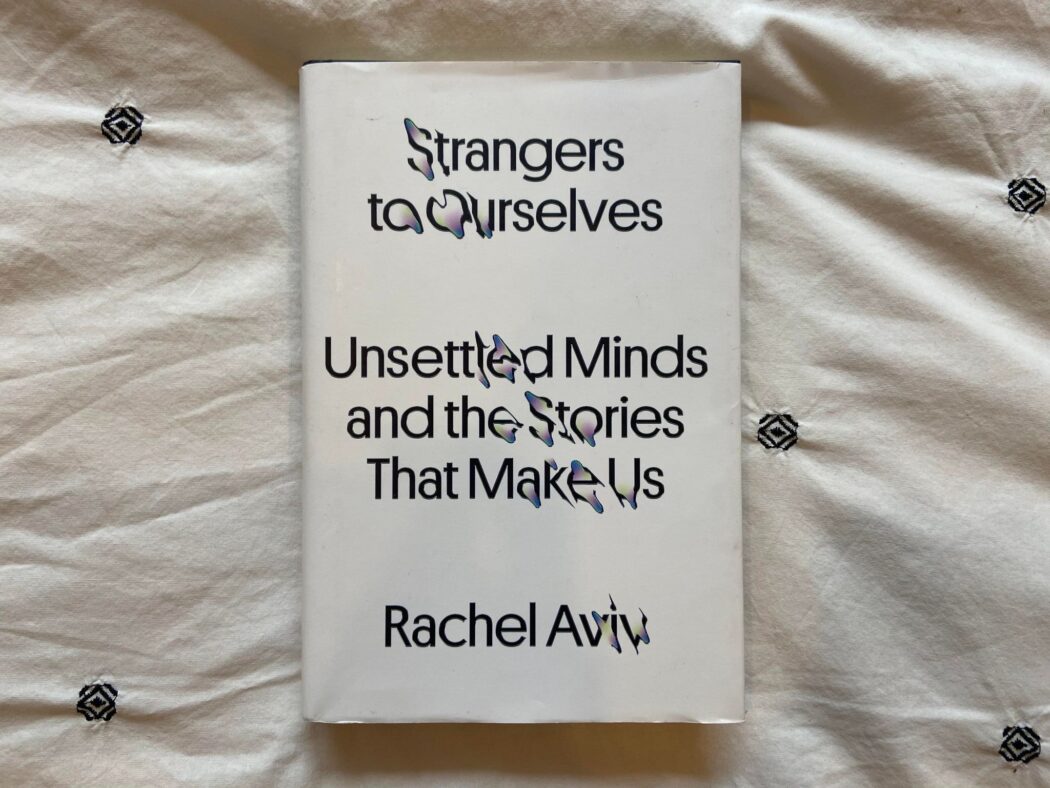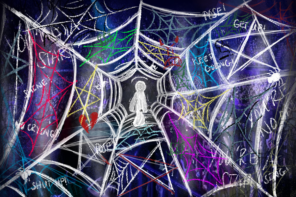In the past, receiving a diagnosis was deemed the end-all, be-all of one’s mental health journey. For some, it is an incredibly relieving moment followed by significant progress. For others, the oversimplified labels for mental health conditions used by mainstream psychiatric institutions pigeonhole them into a particularly harmful narrative, potentially worsening their condition. Rachel Aviv explores this complex relationship between mental health patients and their diagnoses in her book Stranger to Ourselves. It follows the mental health stories of four vastly different people, exploring the interactions between the patient and psychiatric institution, and observing how institutions have both helped and harmed them.
Aviv begins Stranger to Ourselves with her experience being diagnosed with anorexia when she was just six years old. Her story explores the ways in which both mental health institutions and mainstream psychiatry set standards about conditions that can worsen or improve our mental state. As a child, Aviv periodically stopped eating and drinking, prompting her family to send her to an eating disorder rehabilitation center. While reflecting on her situation as an adult, and as someone now well informed about mental health, Aviv understands her periodic abstinence from food as a reflection of a variety of personal and family issues at that time. But as is the case with many people who suffer from poor mental health and seek help, the psychiatric institution made no effort to understand the bigger picture around her condition, and instead quickly labeled her as anorexic. After a brief period in the rehabilitation center, a switch flipped and she began eating, never to relapse again. While she thankfully recovered fairly quickly and easily from her unhealthy relationship with food, her teenaged friend in the program, Hava, continued to battle anorexia for the rest of her life, tragically passing away in her forties. Aviv compares her quick recovery and Hava’s lifelong battle with anorexia to illustrate how the ways we discuss mental health can determine the progression of our condition itself.
Her inability to comprehend and internalize the label ‘anorexic’ allowed her to escape the grasp of the disease.
At only six years old, Aviv was too young to understand the meaning of her diagnosis. Her inability to comprehend and internalize the label ‘anorexic’ allowed her to escape the grasp of the disease. Rachel believes that her abrupt and seamless recovery indicates she struggled with something other than anorexia. Had she been Hava’s age at the time of diagnosis – fifteen years old – old enough to understand the meaning of it, that label possibly could have ‘stuck’ with her, meaning her battle with anorexia may have continued. Aviv uses her own experience to demonstrate how oftentimes, our mental health story “gradually [becomes] something that [isn’t] entirely of our own making.” She urges against the oversimplified and reductive titles that are given to people who are struggling, and instead encourages more nuanced understandings of mental health conditions. Being tied to a single word that is supposed to encapsulate our entire mental state is constricting and potentially harmful.
There are so many unanswered questions about mental health; the interactions of our natural biology, brain chemistry, personal experiences, and predispositions to certain conditions are wildly complex. Stranger to Ourselves holds space for all these intricacies and unanswered questions by encouraging more personalized and holistic solutions. Medical explanations sometimes fail to “factor in the impact of our environments, along with individual, family and community strengths”. For example, two of the four chapters in Aviv’s book focus on women of color, Bapu and Naomi, and their experiences receiving psychiatric evaluations. Western, white doctors were dismissive of their struggle as women, people of color, and mothers. By failing to account for the impact that an intersectional identity had on their mental health, doctors dismissed and condescended these patients. An interplay of social, political, and familial factors caused their distress, creating a difficult situation that was inadequately described by a white, Western doctor’s single-word diagnosis.
Access to oversimplified explanations of disorders allows people to entrench themselves into a particular narrative surrounding a condition they might not have.
The readiness to place potentially incorrect, reductive labels on mental conditions is evident in places outside of traditional psychiatric settings. A recent ‘self-diagnosis’ trend on TikTok demonstrates this tendency. Recently, discourse on social media surrounding mental health has dramatically increased. Videos circulating platforms including TikTok contain quick descriptions and ‘common signs’ of mental health disorders, or show TikTokers sharing their personal experiences. Conversations and posts like these have many positive effects, including reducing stigma, creating an online community for others who are diagnosed, and encouraging those suffering to reach out for help. However, heightened content concerning mental health has also sparked a new phenomena of ‘self diagnosing,’ where viewers diagnose themselves with disorders based on videos from their feed. The New York Times reported that self-diagnosing can lead to “embracing ineffective or inappropriate treatments.” Access to oversimplified explanations of disorders allows people to entrench themselves into a particular narrative surrounding a condition they might not have. The ‘self-diagnosing’ trend illustrates the lack of hesitation to quickly place impersonal labels on complex situations. I certainly understand the temptation to self-diagnose, as naming a problem makes it feel more manageable and makes you feel less alone. Aviv’s book teaches us that while convenient, we should resist this urge and keep space for the ambiguities and complexities that always come with mental health diagnosis.
It is important to question the ways we address mental health, and accept that traditional psychiatric practices have the potential to harm us. We must reject the tendency to oversimplify mental conditions to make them more digestible. Leaving room for ambiguity and uncertainty is essential.
If you or someone you know is in need of mental health resources on campus, please visit the McGill Wellness Hub and Peer Support Center.








